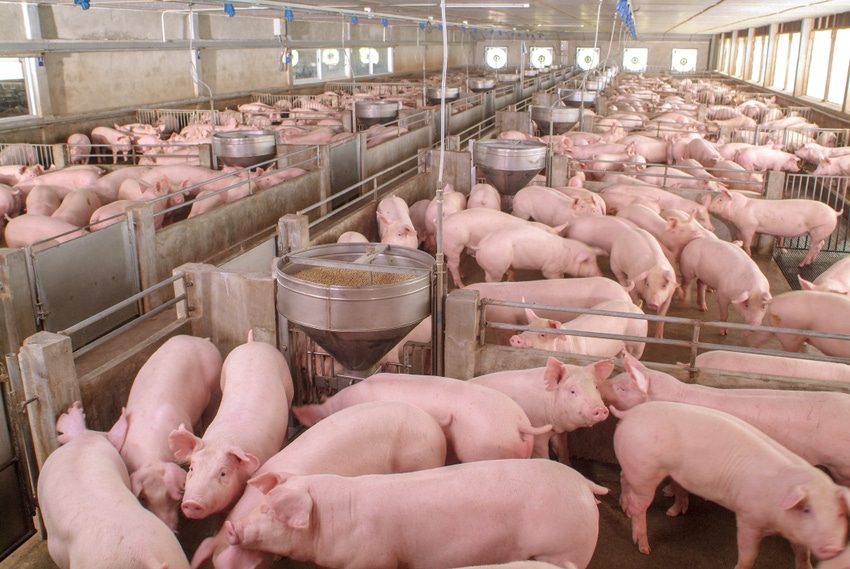U.S. pork industry requests additional ASF prevention measures
NPPC and state associations request imports of organic soy products for animal feeds be restricted.
February 20, 2020

Thanks to continued vigilance by the U.S. Department of Agriculture, the Bureau of Customs & Border Protection (CBP) and the U.S. pork industry, the U.S. has so far prevented an outbreak of African swine fever (ASF), but to ensure that the U.S. swine herd remains free of the disease, the National Pork Producers Council (NPPC) and 30 state pork producer associations asked Agriculture Secretary Sonny Perdue Feb. 20 to take additional measures, including restricting imports of organic soy products for animal feeds from all ASF-positive countries.
NPPC explained that the U.S. pork and feed industries have adopted holding times to allow for the natural degradation of any viruses to ensure that most imported feed ingredients are safe to use. Research indicates, however, that organic soy products can maintain the virus for longer periods of time, making holding times impractical, NPPC said.
While overall imports of feed ingredients are minimal, most soy products imported by the U.S. are organic, NPPC said, adding that the organization is confident in the safety of domestic soy products.
"We appreciate the diligent focus and outstanding collaboration between the U.S. pork industry, USDA, CBP, Congress and state animal health officials to protect the U.S. swine herd," said NPPC president David Herring, a hog farmer from Lillington, N.C. "While we are confident in the safety of domestic soy products, we urge Secretary Perdue to use authority under the Animal Health Protection Act to restrict imports of organic soy products from ASF-positive countries to further safeguard our animals and prevent an outbreak that would have devastating, far-reaching economic consequences."
NPPC and the 30 state pork associations also asked USDA to further explore the merit of restricting all soy products from ASF-positive countries to enhance its online system that would be used for permitting animal movements if an outbreak occurred and to expand state animal health laboratory testing capacity. The pork industry letter to Perdue can be read here.
In the letter, NPPC noted that USDA personnel, as well as staff from the Food & Drug Administration’s Center for Veterinary Medicine, have been involved in a Feed Risk Task Force organized by feed and pork industry organizations that also includes representatives from other food animal groups.
According to the letter, the task force "has reached a stalemate due to lack of validated sampling and testing protocols for feed ingredients. However, we continue to have heightened concern over the risk of ASF contamination of imported feed ingredients."
"The pork and feed industry participants have taken steps to limit the risk from imported vitamin and amino acids through holding times, but that is an impractical mitigation for soy products, especially organic soy products, due to their ability to maintain virus for extended periods of time," NPPC said in the letter. "For that reason, we are asking you to utilize your authority under the Animal Health Protection Act to restrict the imports of organic soy products for animal feeds from all ASF-positive countries and to consider if action should be taken on all soy products."
Last week, the U.S. House of Representatives approved Senate legislation that authorizes funding for 720 new agricultural inspectors at land, air and sea ports to prevent ASF and other foreign animal diseases from entering the U.S., NPPC said, noting that the legislation also authorizes 600 new agricultural technicians and 60 new agricultural canine teams.
The most likely path for a foreign animal disease to enter the country would be through the illegal transport of contaminated products. An outbreak of certain foreign animal diseases, including ASF, would immediately close U.S. pork export markets, causing significant damage to farmers and consumers, NPPC said.
NPPC added that it continues to advocate for other foreign animal disease preparedness measures, including quickly establishing a U.S. foot and mouth disease (FMD) vaccine bank as provided for in the 2018 farm bill. The U.S. does not currently have access to enough vaccine to quickly contain and eradicate an FMD outbreak, NPPC said.
You May Also Like


.png?width=300&auto=webp&quality=80&disable=upscale)
